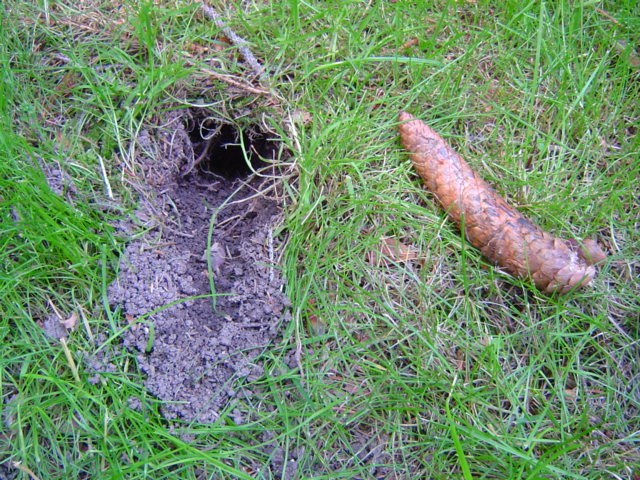The spring and summer seasons are the best time for planting, but it is crucial to protect your garden beds from invasive species and wildlife, as any decent gardener knows. One animal that constantly gets the blame for torn-up garden beds is the cute but smelly skunk. However, before you get on the phone with skunk removal in Hamilton, it is best to understand if a skunk is really to blame for your landscape woes.
The Potential Culprits
Aside from skunks, moles and raccoons can also wreak havoc on your gardens. If a skunk is the culprit, you will typically find shallow holes in the ground with a ring of loose soil. As a skunk goes about feeding, it uses its long front claws to dig away at the soil while pressing its nose into the ground.
Moles can leave similar loose soil on the surface, but their holes are rarely seen, especially in warmer months. The mole will push soil up to the surface as it digs its way down. The animal might also push loose soil up and out of the way to create an air hole. Many mole holes are the result of searching for earthworms to eat.
Raccoons are the messiest and most destructive of the bunch. You will know when a raccoon is behind your garden woes when you see chunks of sod ripped up and turned over. Raccoons have an easier time ripping and tearing at the garden and grass because of their hand-like front paws.
How To Know if a Skunk Is the Culprit
The most distinctive giveaway that a skunk is raiding your property is the odour. As nocturnal animals, you will rarely see a skunk, but since they are defensive little critters, it is not uncommon to smell them at night or in the morning.
A skunk might also try to access your garbage cans. Skunks love insects and grubs, and depending on where you store your garbage cans, the storage containers can be a treasure trove of food. It is best to keep garbage cans in a sealed garage or outbuilding.
Since skunks are not good climbers, everything they eat is at or close to ground level. Unfortunately, your garden beds provide easy access and an excellent food source. Torn up crops or flowers is a byproduct of skunk activity. However, smelling the animal and seeing evidence of feeding holes are often the only surefire ways to determine if it is responsible for your garden bed problems, outside of witnessing it firsthand.
Skunk Prevention and Deterrents
Skunks need shelter and food, and the animal despises noises, light, and water. The best way to prevent a skunk from nesting on your property is by eliminating any obvious places — seal under decks, porches, and outbuildings. Keep your lawn well-manicured, and ensure no access to pet food and other food sources. If a deterrent is necessary, you can try ultrasonic repellers or motion-activated sprinklers and lights. You can also use a grub killer to ensure your yard does not provide a nightly feast.
Call a Professional
You should never handle a wild animal. Wildlife removal is a job for well-trained and qualified individuals. While a skunk is unlikely to attack a human, if threatened, it will spray you. The odour a skunk releases is not something easily removed, and it is often worse on the predator or person on the receiving end.
Do you believe a skunk is tearing up your garden beds or landscaping? Do not hesitate to call Skedaddle Humane Wildlife Control. The company will schedule an in-person property assessment as soon as possible to customize a solution that protects your property and the animal.



